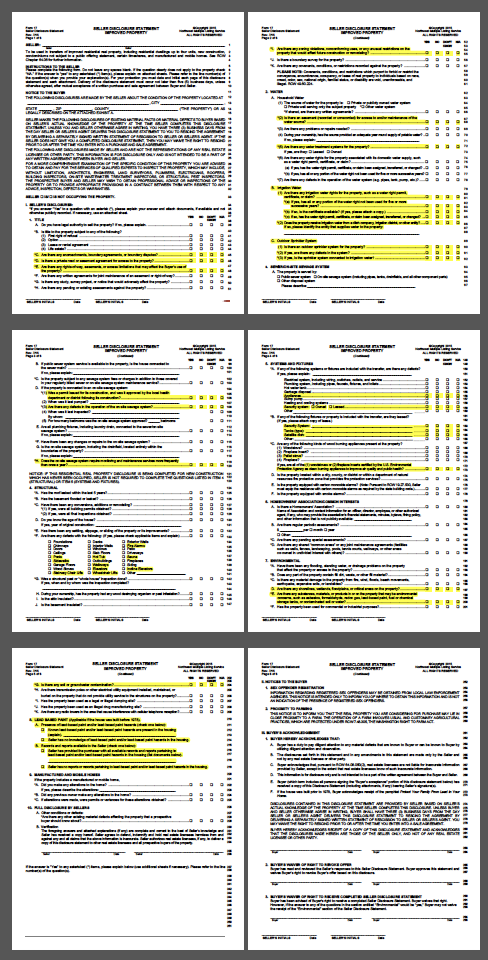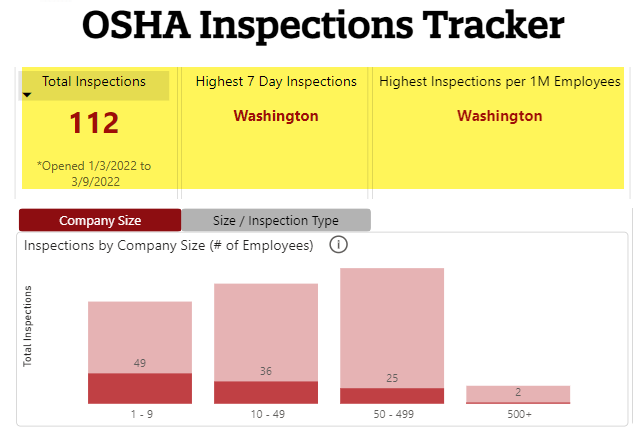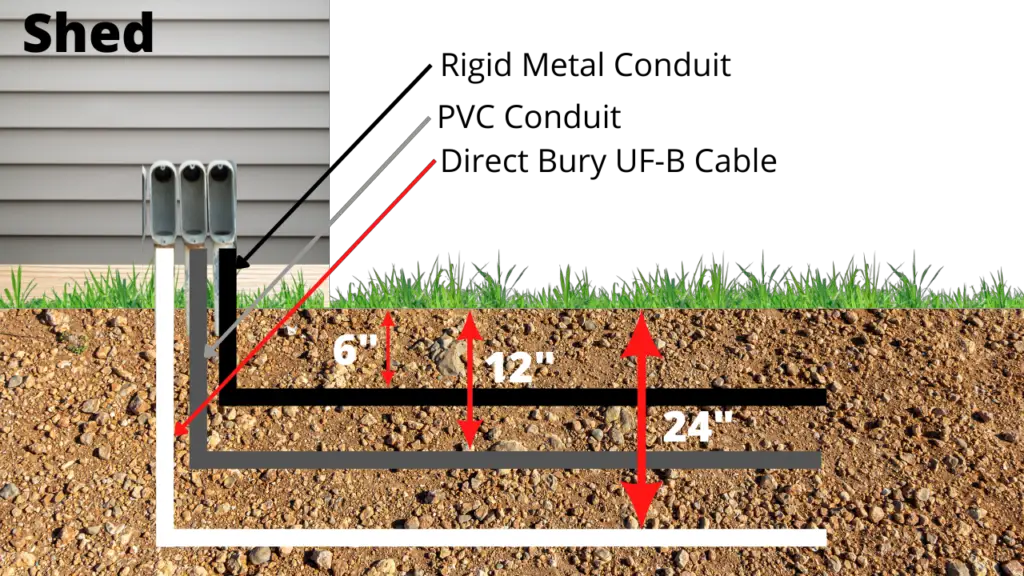If you’re planning to buy or sell a home in Washington state, you might be wondering whether home inspections are mandatory. Understanding the regulations around home inspections is crucial in making informed decisions. In Washington state, unlike some other states, home inspections are not legally required. However, that doesn’t mean they are not important. Home inspections provide buyers and sellers with valuable insights into the condition of a property, helping ensure transparency and peace of mind throughout the transaction process. While it may not be mandatory, it is highly recommended to have a home inspection conducted to protect your investment and avoid potential surprises down the road.
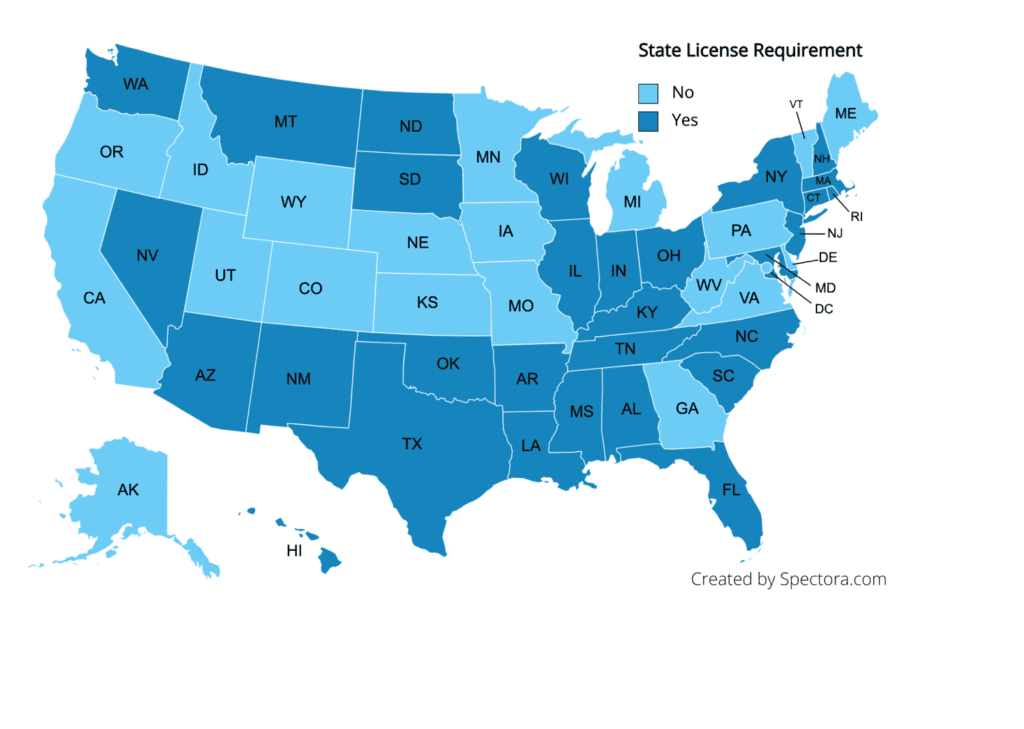

Laws and Regulations
Real Estate Seller Disclosure Act
The Real Estate Seller Disclosure Act in Washington state requires sellers to disclose any known material defects or issues with the property before the sale. This act aims to ensure transparency and protect buyers from purchasing a property with hidden defects. The seller disclosure form provides valuable information about the condition of the property, but it should not replace the need for a professional home inspection.
Washington Administrative Code (WAC) 308-408C
The Washington Administrative Code (WAC) 308-408C sets the standards and requirements for home inspectors in the state. It defines the scope and limitations of a home inspection, as well as the qualifications and practices expected from home inspectors. It is essential to hire a home inspector who complies with the regulations outlined in the WAC to ensure a thorough and reliable inspection.
Local City and County Regulations
In addition to state-level regulations, local cities and counties in Washington may have their own rules and regulations related to home inspections. It is crucial to familiarize yourself with these regulations, as they may have additional requirements or specific guidelines that need to be followed during the home inspection process. Contacting your local building department or conducting online research can provide you with the necessary information.
Home Inspection Process
Selecting a Home Inspector
Choosing the right home inspector is a crucial step in the home inspection process. Consider factors such as the inspector’s qualifications, experience, and reputation. Look for inspectors who are licensed and certified, as this demonstrates their commitment to professionalism and adherence to industry standards. Reading reviews and testimonials from previous clients can also give you an idea of the inspector’s quality of work.
Scheduling an Inspection
Once you have selected a home inspector, it is time to schedule the inspection. Coordinate with the seller or their agent to find a mutually convenient time for the inspection to take place. It is generally recommended to schedule the inspection as early as possible in the buying process so that any significant issues can be identified promptly. Be prepared for the inspection to take several hours, depending on the size and condition of the property.
Attending the Inspection
Although it is not required, attending the home inspection is highly recommended. Being present during the inspection allows you to have a firsthand understanding of the inspector’s findings and ask any questions that may arise. It also gives you an opportunity to learn more about the property’s systems and maintenance requirements. The inspector will walk you through the property, pointing out any potential issues and explaining their significance.
Receiving the Inspection Report
After the inspection is complete, the home inspector will provide you with a detailed inspection report. This report will outline their findings, including any defects or issues discovered during the inspection. It may include photographs, diagrams, and recommendations for further evaluation or repairs. Take the time to review the report thoroughly and discuss any concerns or questions with the home inspector. The information provided in the inspection report will help you make an informed decision about the property.


Benefits of Home Inspections
Identifying Potential Issues
One of the primary benefits of a home inspection is the ability to identify potential issues that may not be apparent to the untrained eye. Home inspectors are trained to assess the structural integrity, electrical systems, plumbing, HVAC systems, and other essential components of a property. They can identify problems such as water leaks, faulty electrical wiring, or mold growth that may not be immediately visible but could cause significant issues and expenses down the line.
Negotiating Repairs or Price
The findings of a home inspection can be used as a negotiating tool during the buying process. If significant issues are discovered, you can request repairs to be completed by the seller before the transaction is finalized. Alternatively, you may negotiate a lower purchase price to account for the cost of necessary repairs. The inspection report can provide you with leverage and potentially save you money in the long run.
Ensuring Safety and Peace of Mind
A home inspection provides buyers with peace of mind by ensuring their safety and well-being in their new home. Knowing that the property has been thoroughly inspected and any potential hazards or safety concerns have been identified and addressed can alleviate the stress and worry that often accompany the process of buying a home. It allows you to move into your new home with confidence, knowing that it meets safety standards and is in good condition.
When Home Inspections Are Typically Conducted
Pre-Purchase Inspections
Pre-purchase inspections are the most common type of home inspection and are typically conducted after an offer has been accepted but before the closing of the sale. The purpose of a pre-purchase inspection is to provide the buyer with a comprehensive assessment of the property’s condition so that they can make an informed decision. This type of inspection is essential for buyers who want to ensure they are fully aware of any potential issues before committing to the purchase.
Pre-Listing Inspections
In some cases, sellers may choose to have a pre-listing inspection performed before listing their property on the market. Pre-listing inspections are designed to identify any issues or defects with the property that may affect its marketability or sale price. By addressing these issues before listing, sellers can potentially increase the value of their property and make it more attractive to potential buyers.
New Construction Inspections
Before purchasing a newly constructed home, it is still important to have a home inspection performed. New construction inspections help identify any construction defects, improper installations, or unfinished work that may have been overlooked by the builder. It is recommended to hire an inspector who specializes in new construction inspections to ensure that all aspects of the property have been adequately assessed.
Renovation or Remodel Inspections
If you are considering purchasing a home that has undergone significant renovations or remodeling, a specialized inspection may be necessary. Renovation or remodel inspections focus on evaluating the quality of the renovations and ensuring that they comply with local building codes and regulations. This type of inspection can help identify any shortcuts taken during the renovation process and prevent potential issues in the future.
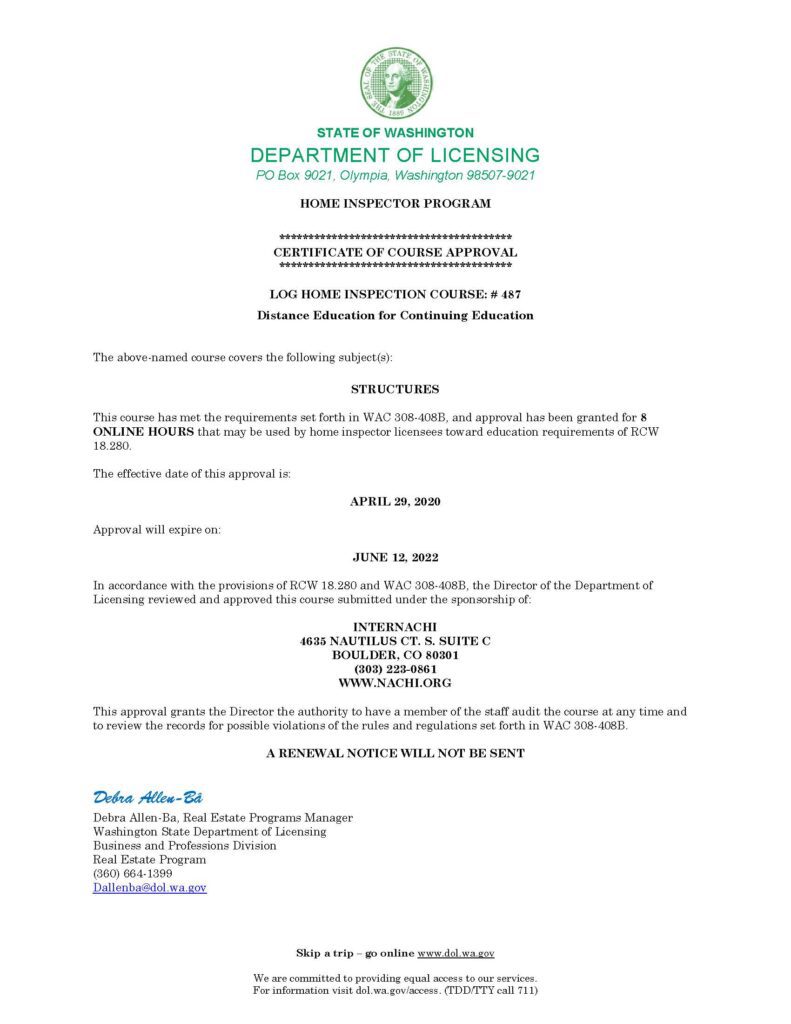

Home Inspector Qualifications
Licensing and Certification
In Washington state, home inspectors are required to be licensed. This ensures that they have met the necessary education and training requirements and have demonstrated their understanding of the industry standards and best practices. When selecting a home inspector, always verify their license and inquire about any additional certifications they may hold. Hiring a licensed and certified home inspector provides reassurance of their qualifications and expertise.
Professional Associations
Home inspectors who are members of professional associations, such as the American Society of Home Inspectors (ASHI) or the International Association of Certified Home Inspectors (InterNACHI), are often highly qualified and committed to ongoing professional development. These associations set strict membership standards and require inspectors to adhere to a code of ethics. Hiring a home inspector who is actively involved in professional associations can give you confidence in their abilities and professionalism.
Experience and Expertise
While licensing and certification are crucial, experience and expertise should also be considered when selecting a home inspector. Look for inspectors who have a significant amount of experience in the industry and have performed inspections on properties similar to the one you are considering. Experienced inspectors are likely to have encountered a wide range of issues and can provide valuable insights and recommendations based on their past experiences.
Cost of Home Inspections
Factors Affecting the Cost
The cost of a home inspection in Washington state can vary depending on several factors. The size and type of the property, as well as its location, can influence the cost of the inspection. Additional services, such as testing for radon or mold, may also incur additional fees. It is advisable to obtain multiple quotes from different home inspectors to compare prices and services offered. Keep in mind that while cost is an important factor, it should not be the sole determining factor when selecting a home inspector.
Average Cost in Washington State
The average cost of a home inspection in Washington state is around $400 to $600, but this can vary depending on the factors mentioned above. It is essential to note that the cost of a home inspection is a small investment compared to the potential expenses associated with undisclosed property issues. Considering the complexity and significance of a real estate transaction, it is wise to allocate a reasonable budget for a thorough and comprehensive home inspection.
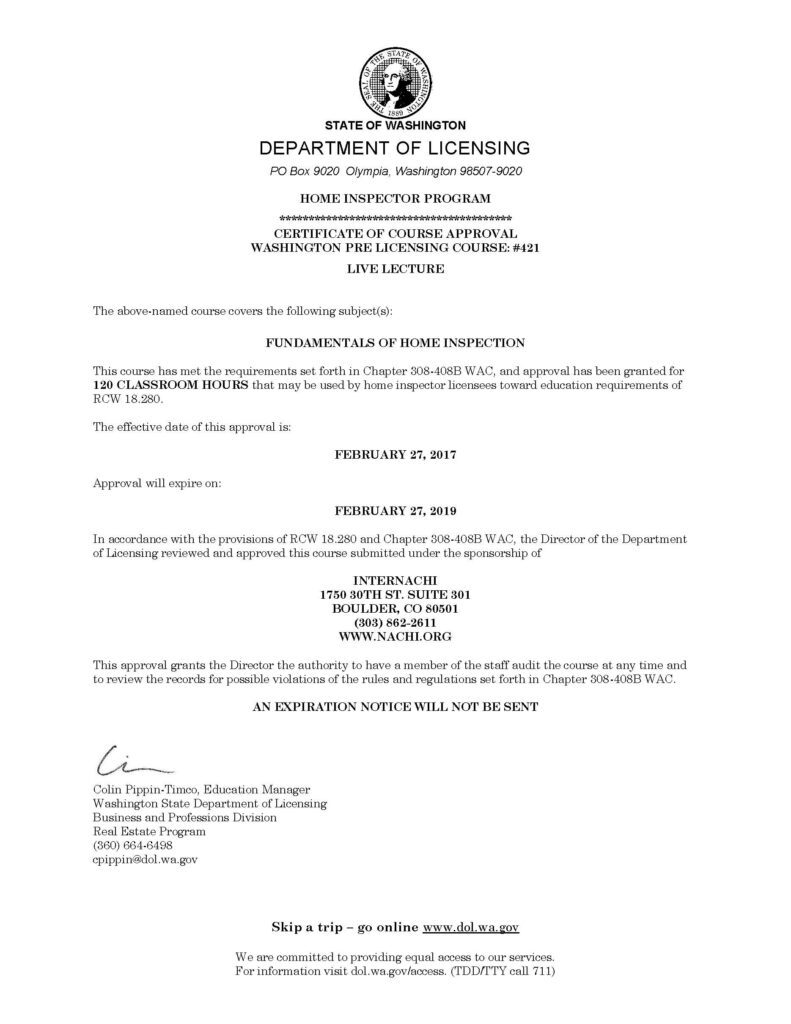

Potential Consequences of Skipping a Home Inspection
Undisclosed Property Issues
By opting to skip a home inspection, you risk purchasing a property with undisclosed issues or defects. Without a professional inspection, it may be challenging to identify potential problems or estimate the cost of necessary repairs accurately. These undisclosed property issues could lead to significant expenses and frustrations in the future.
Financial Losses
Skipping a home inspection can result in financial losses. If undetected issues arise after the purchase, you will be responsible for the cost of repairs and maintenance. These unexpected expenses can strain your budget and potentially diminish the value of your investment. A comprehensive home inspection can help uncover these issues early on, saving you from potential financial losses.
Legal and Liability Risks
Not conducting a home inspection can expose you to legal and liability risks. Without an inspection report, you may not have sufficient evidence to hold the seller accountable for undisclosed defects. In addition, failing to address safety concerns or other issues identified by a home inspector could result in accidents or injuries, potentially leading to legal consequences. Protect yourself and your investment by obtaining a professional home inspection.
Exceptions and Exemptions
Foreclosures and Short Sales
In some cases, foreclosures and short sales may be exempt from the requirement of a home inspection. These types of properties are often sold as-is, meaning the seller is not obligated to disclose any defects, and the buyer assumes all responsibility for assessing the property’s condition. Despite the exemption, it is still highly advisable to have a home inspection performed to identify any potential issues and estimate the cost of repairs.
As-Is Properties
Properties sold as-is are typically exempt from a home inspection requirement. This means that the buyer takes on all responsibility for any repairs or issues with the property. However, even when purchasing an as-is property, it is still recommended to consider a home inspection. The inspection can help you make an informed decision and understand the potential risks associated with the purchase.
Investment Properties
Investment properties, such as rental properties or commercial properties, may not have the same home inspection requirements as residential properties. However, conducting a thorough inspection before purchasing an investment property is still important. It allows you to identify any potential issues that could affect the property’s profitability or require immediate attention. Investing in a professional inspection can help ensure that your investment is sound and well-maintained.
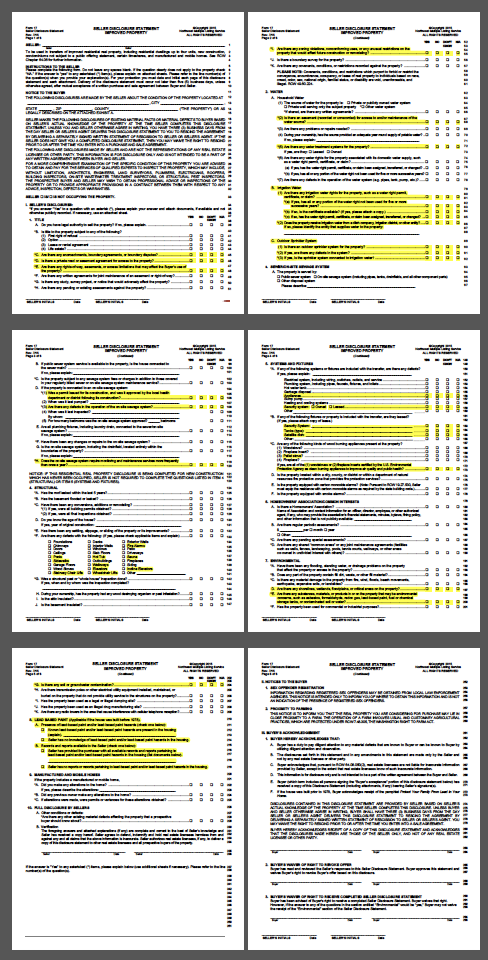

Additional Inspections and Assessments
Pest and Termite Inspections
In addition to a general home inspection, it is advisable to consider a pest and termite inspection. These inspections focus specifically on identifying any signs of pest infestation or termite damage. Termites and pests can cause significant structural damage to a property, leading to costly repairs. A pest and termite inspection can help uncover any existing or potential issues and provide recommendations for treatment or prevention.
Radon Testing
Radon is a radioactive gas that can be present in homes and pose a health risk. Testing for radon is not typically included in a standard home inspection, but it is an important consideration, especially in certain geographical areas. Radon testing can provide peace of mind and ensure the safety of you and your family. It is recommended to consult with your home inspector or a radon testing specialist to determine if additional testing is necessary.
Mold and Asbestos Inspections
If you suspect the presence of mold or asbestos in the property, it is crucial to have specialized inspections performed. Mold and asbestos can pose health risks and may require professional remediation. A dedicated mold inspection can identify the presence of mold and assess the extent of the infestation. Asbestos inspections focus on identifying asbestos-containing materials and evaluating the risk of exposure. Both inspections are particularly important when purchasing an older property.
Structural and Foundation Assessments
In cases where there are concerns about the structural integrity of a property, a structural and foundation assessment may be necessary. These assessments are typically performed by qualified structural engineers who specialize in assessing the stability and safety of buildings. They can identify any issues with the foundation, framing, or other structural components and provide recommendations for repairs or further evaluation.
Conclusion
Home inspections are not required by law in Washington state, but they are highly recommended to protect buyers and ensure they are making informed decisions. By identifying potential issues, negotiating repairs or price, and ensuring safety and peace of mind, a home inspection provides valuable information about the property. Regardless of exceptions and exemptions, it is still important to consider a home inspection, even in unique circumstances such as foreclosures or as-is properties. Investing in a professional home inspection can save you from financial losses, legal risks, and unnecessary stress. Make an informed decision and prioritize the safety and well-being of your future home by scheduling a thorough home inspection.

